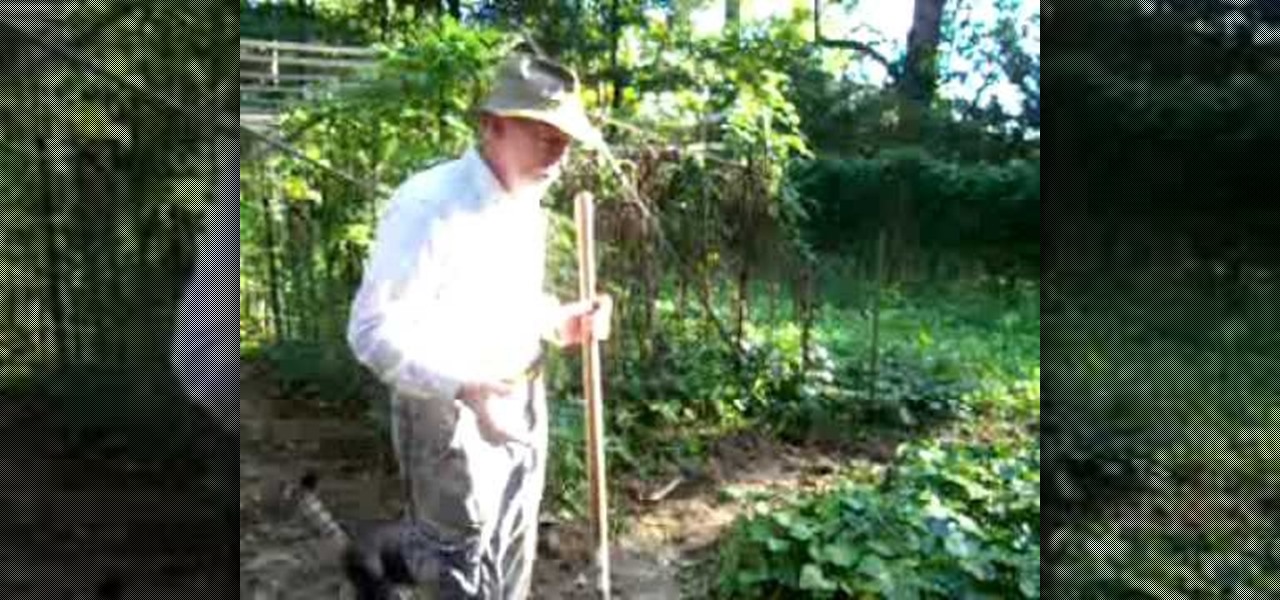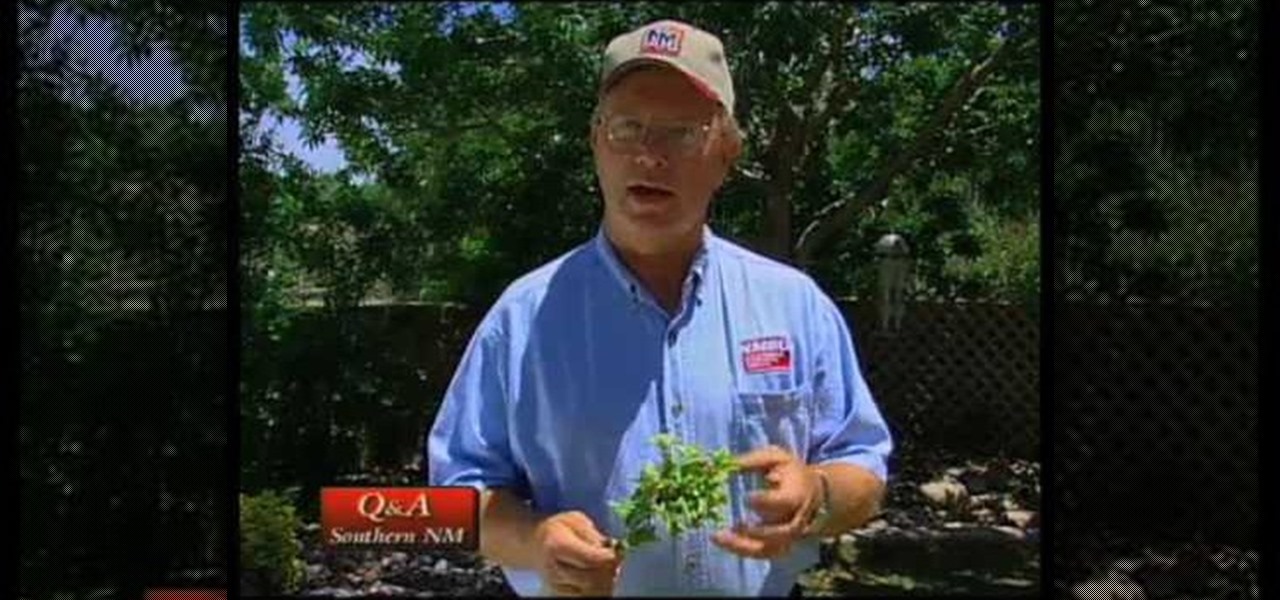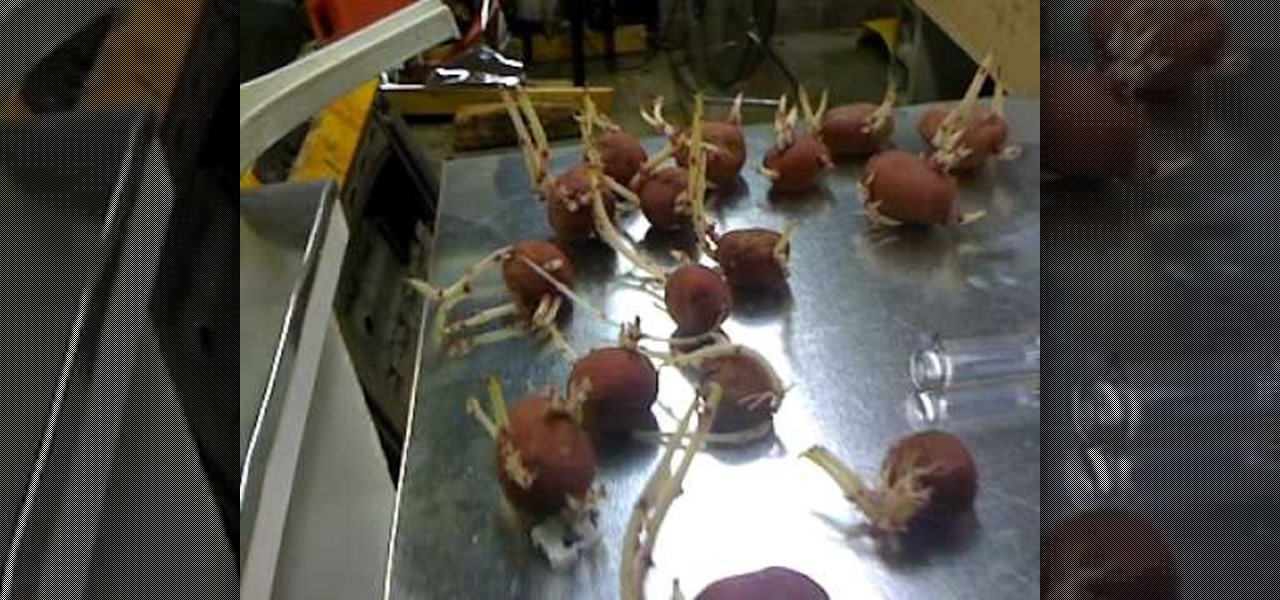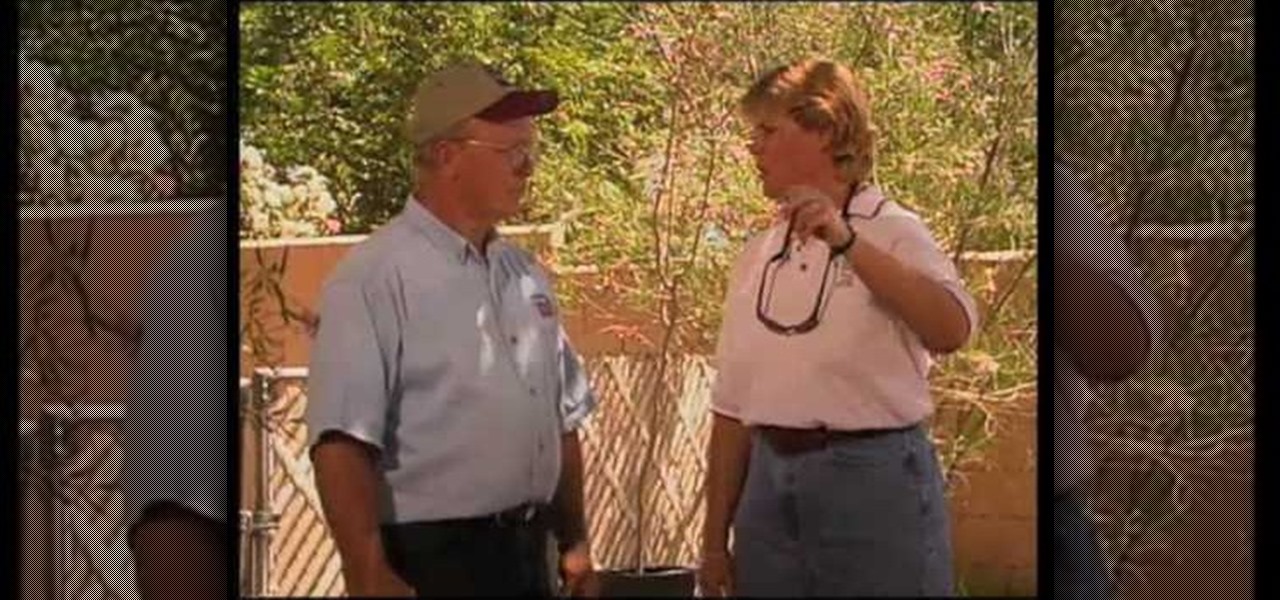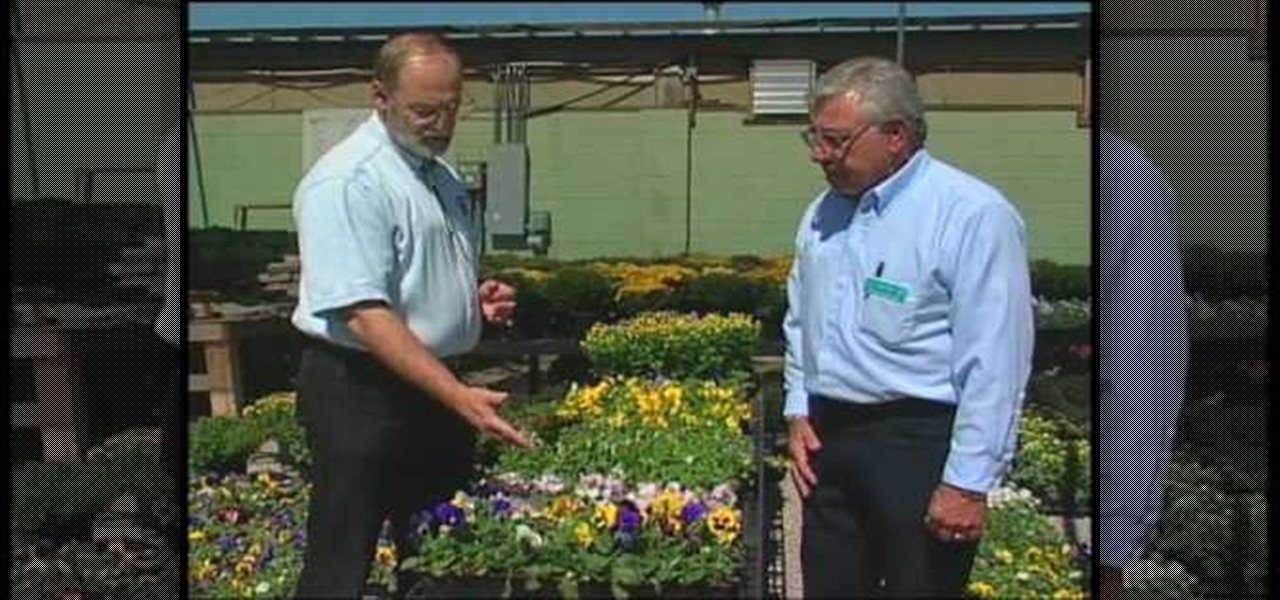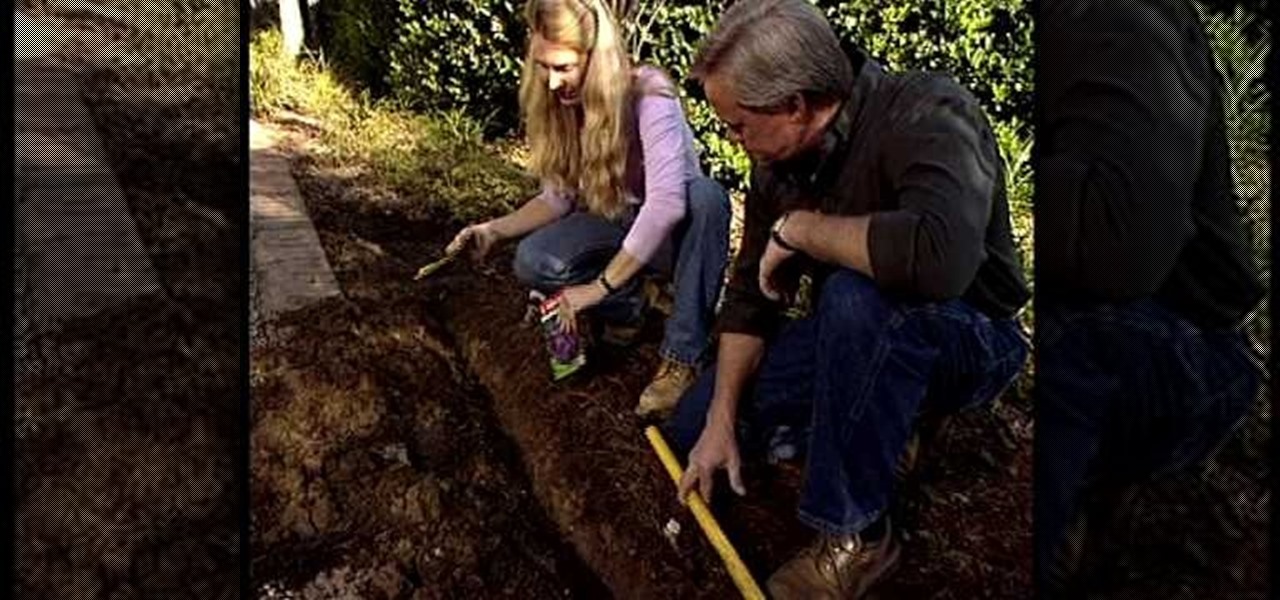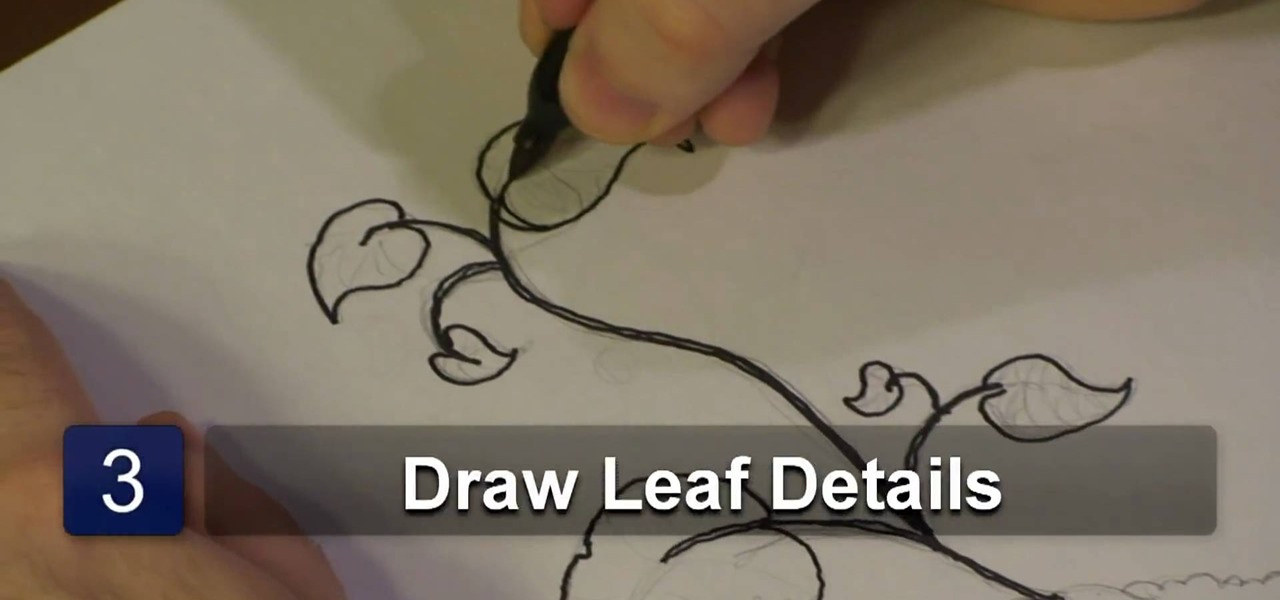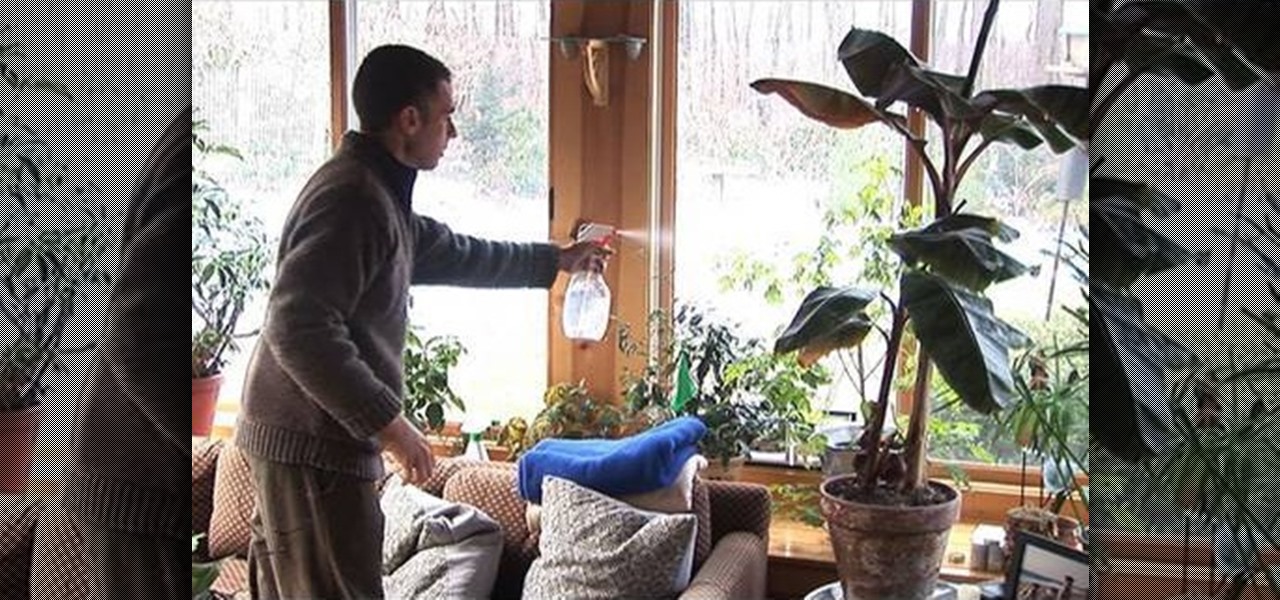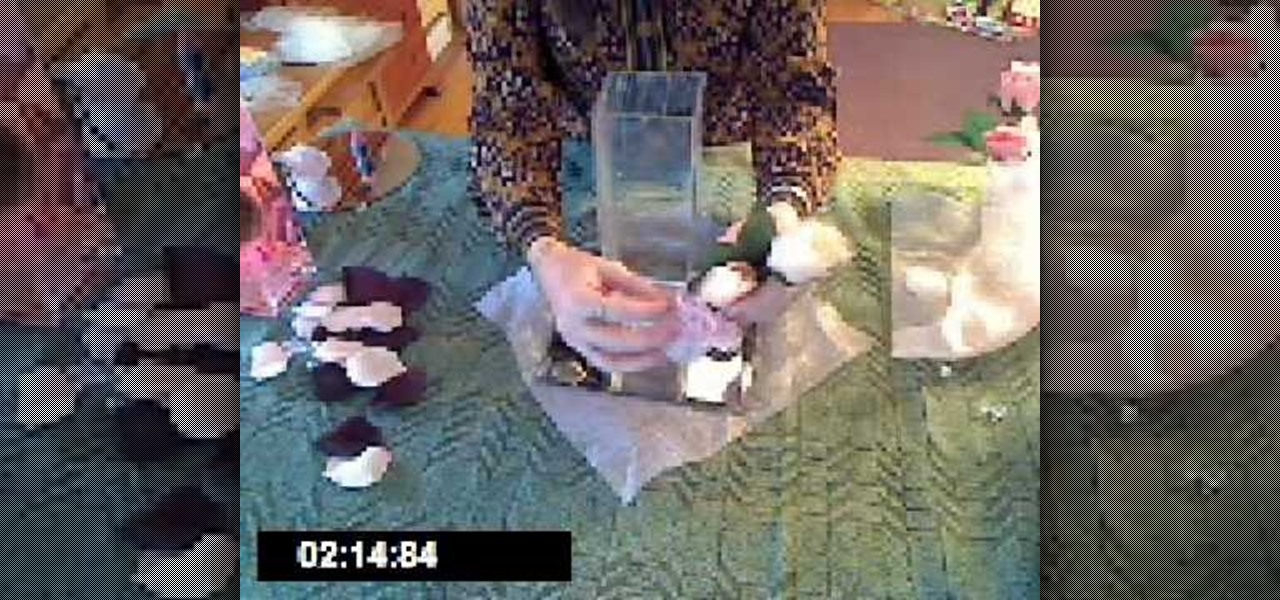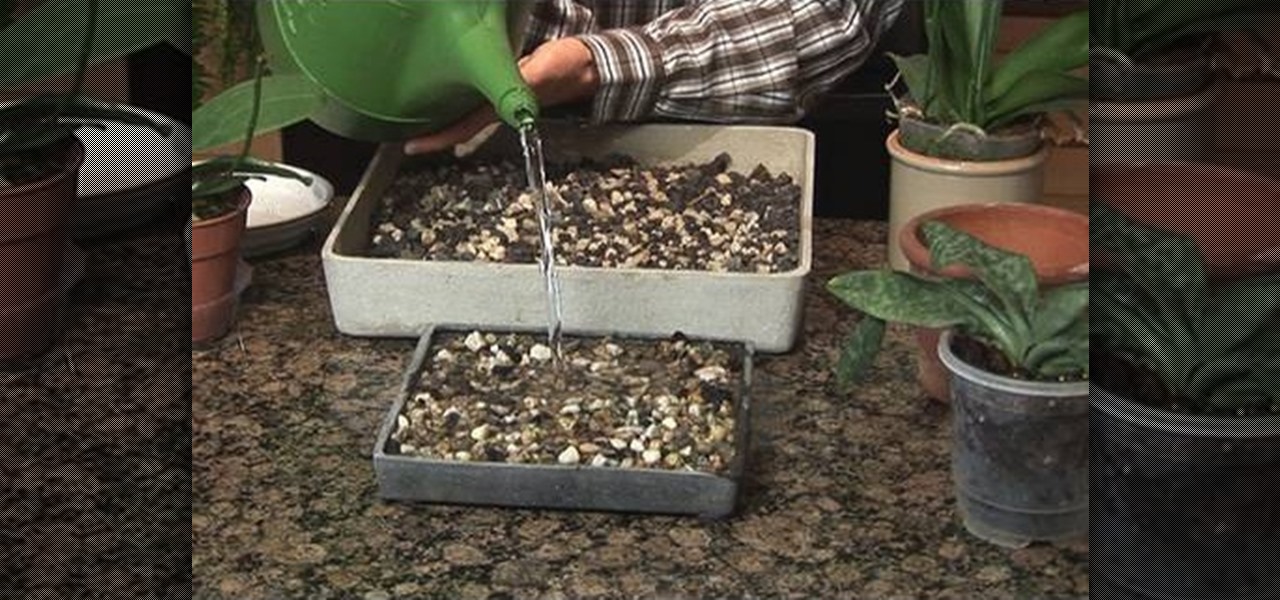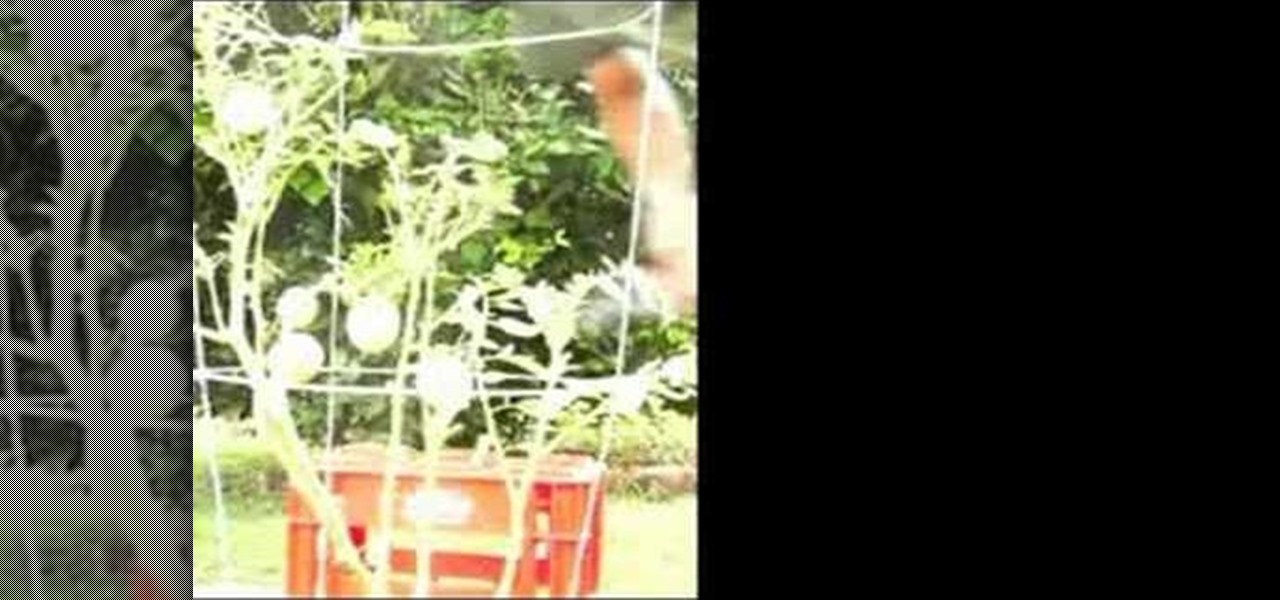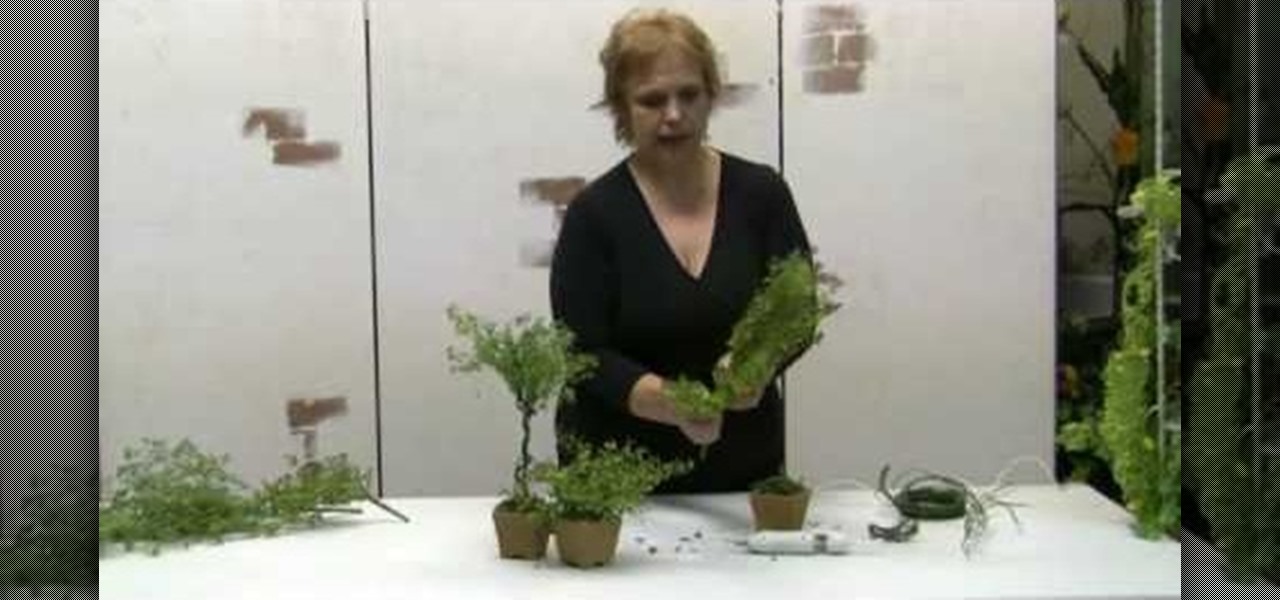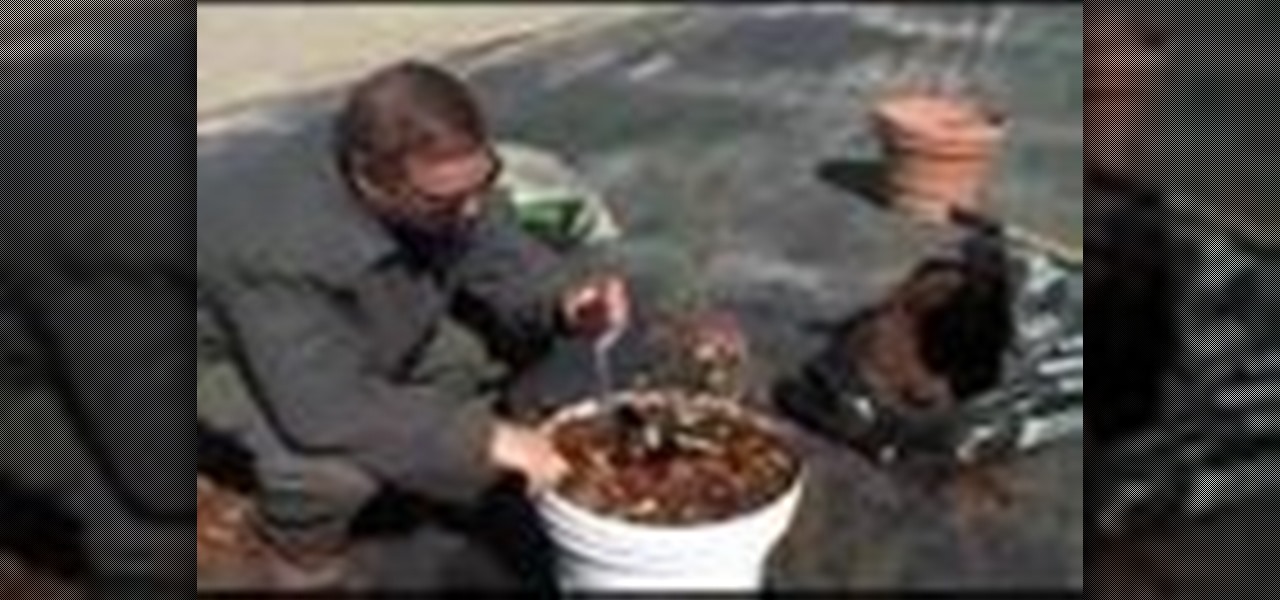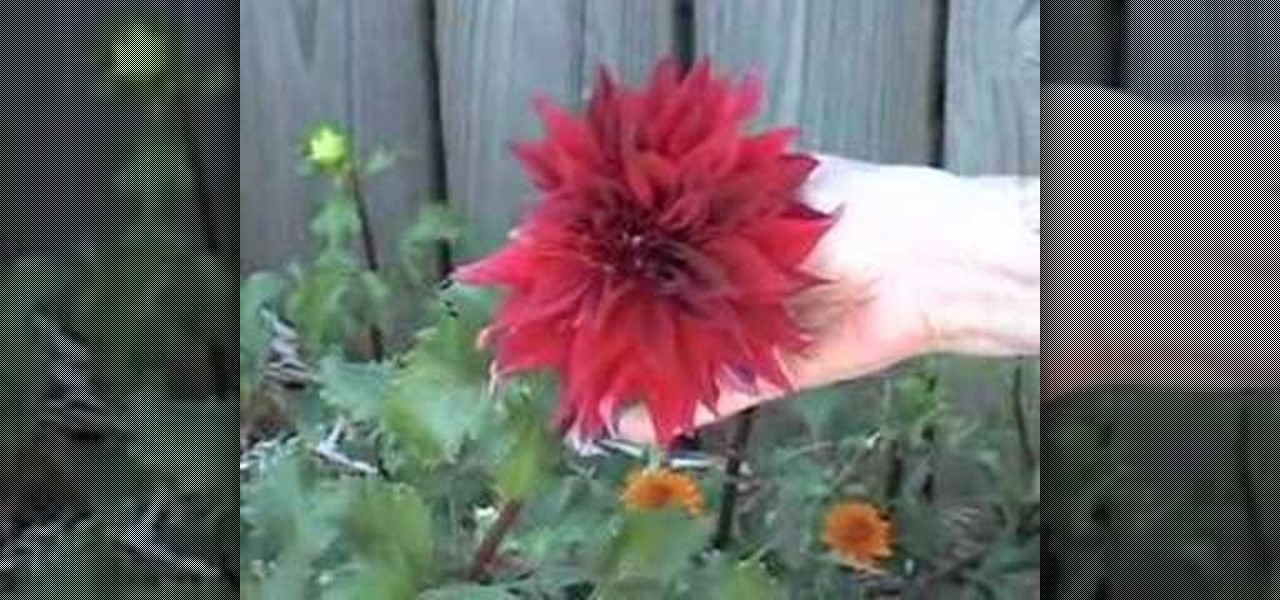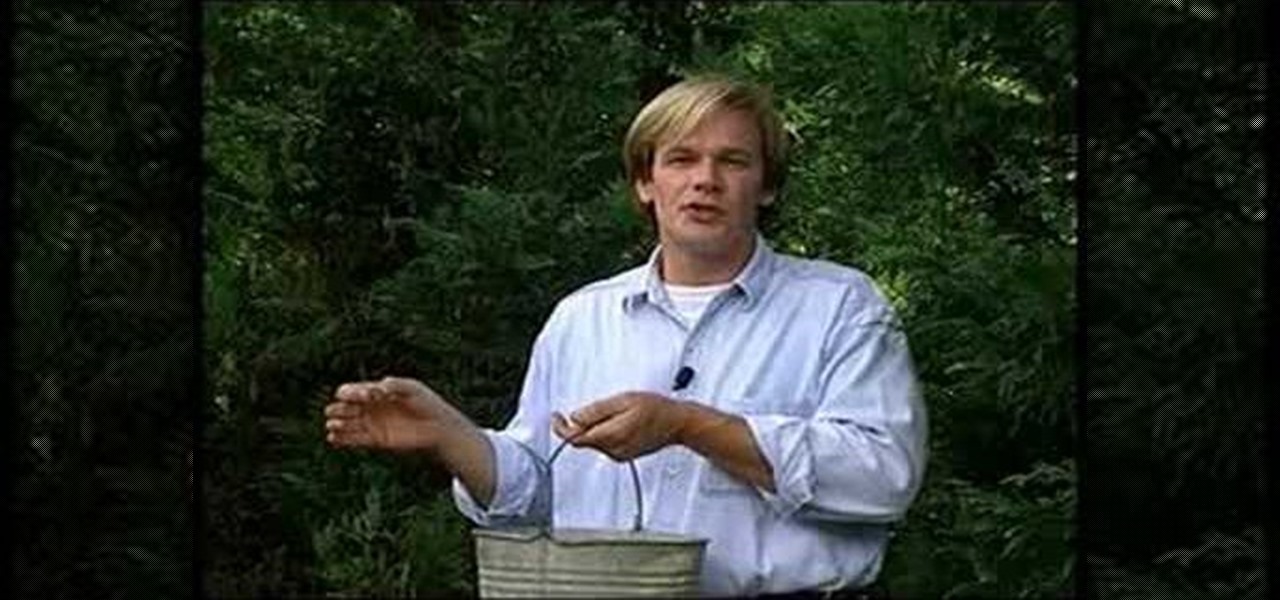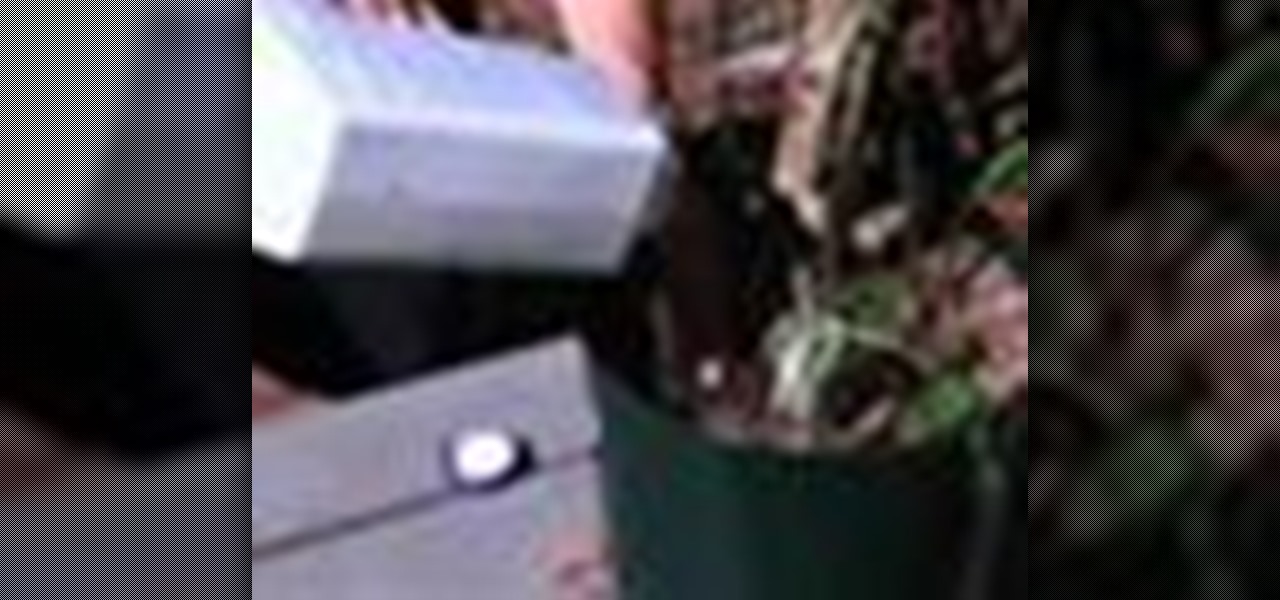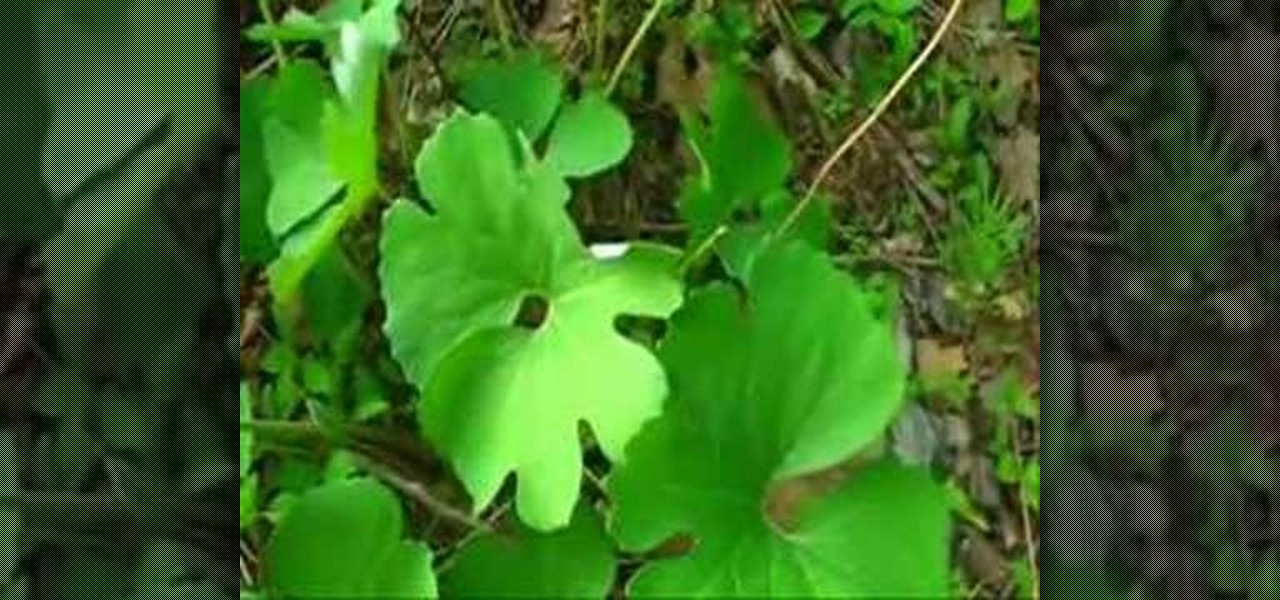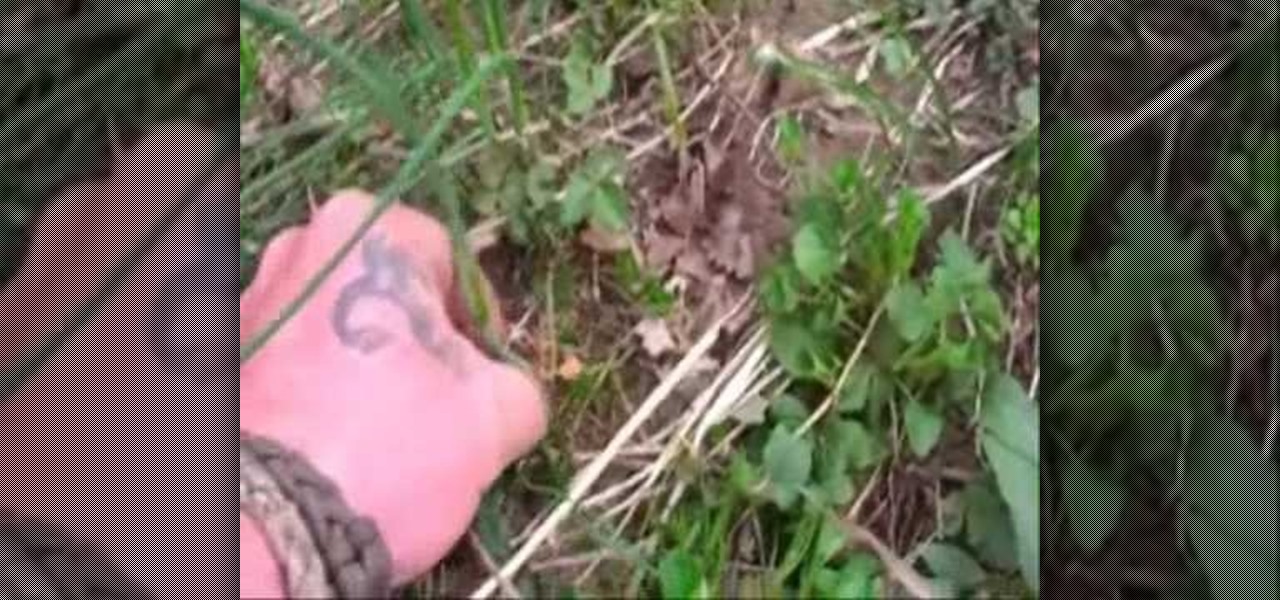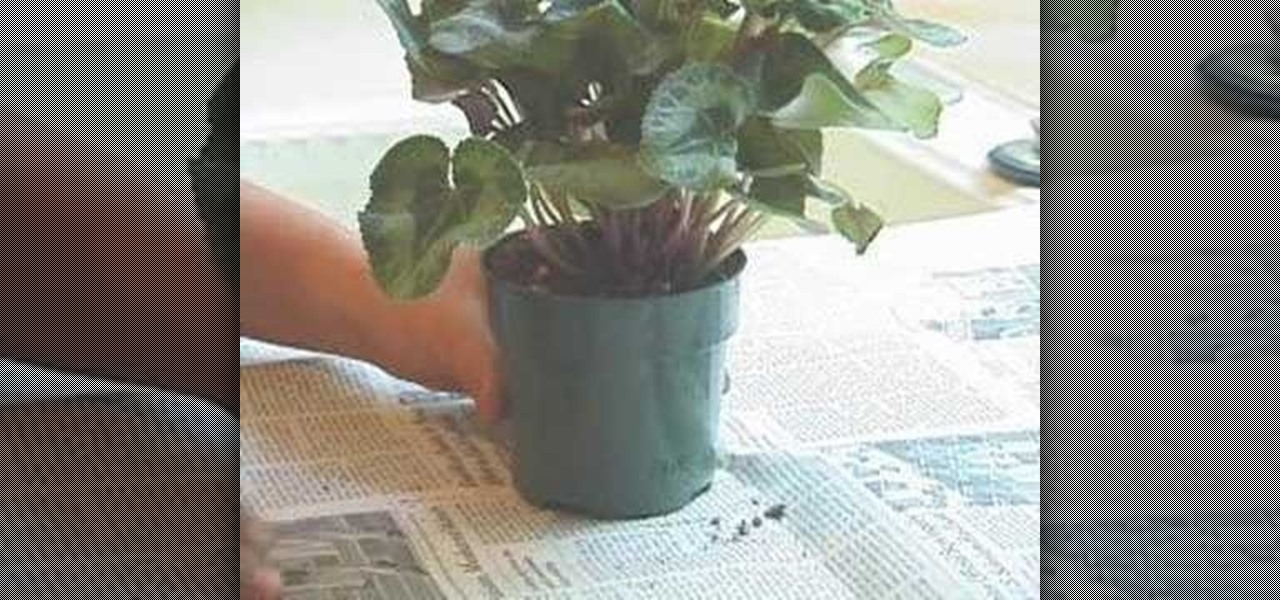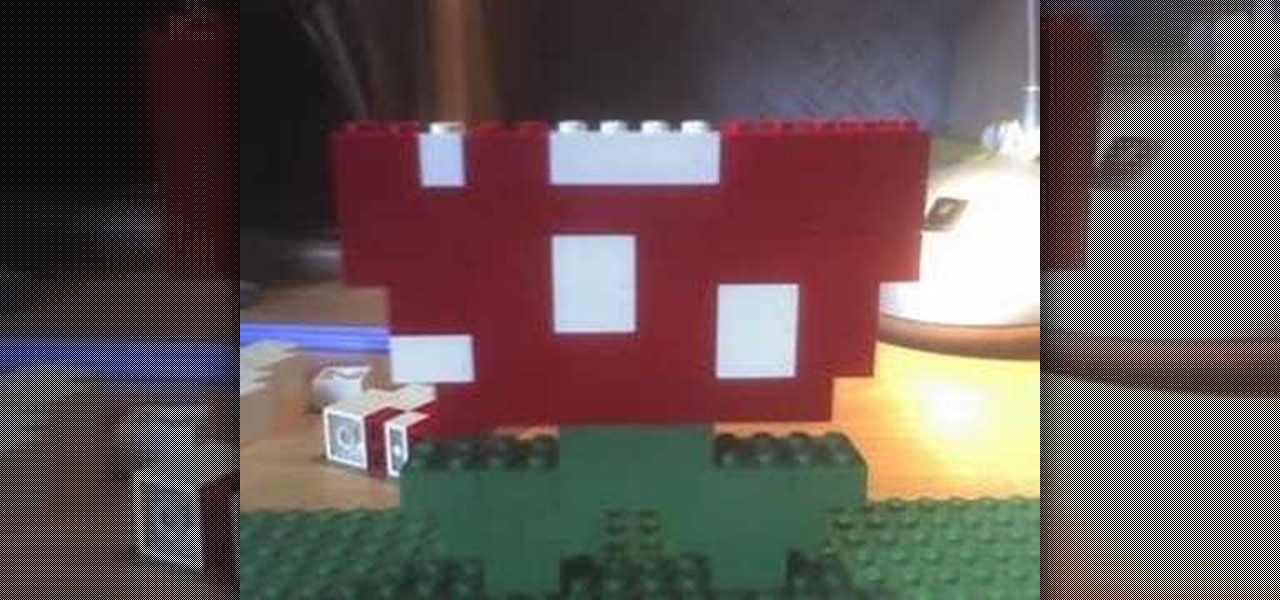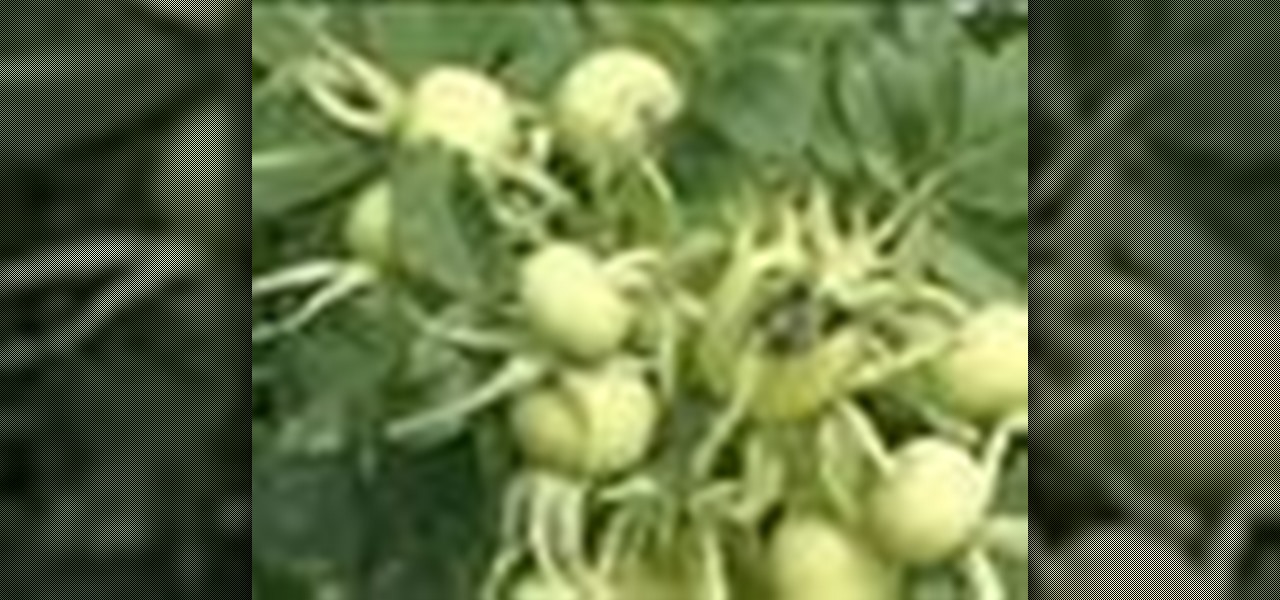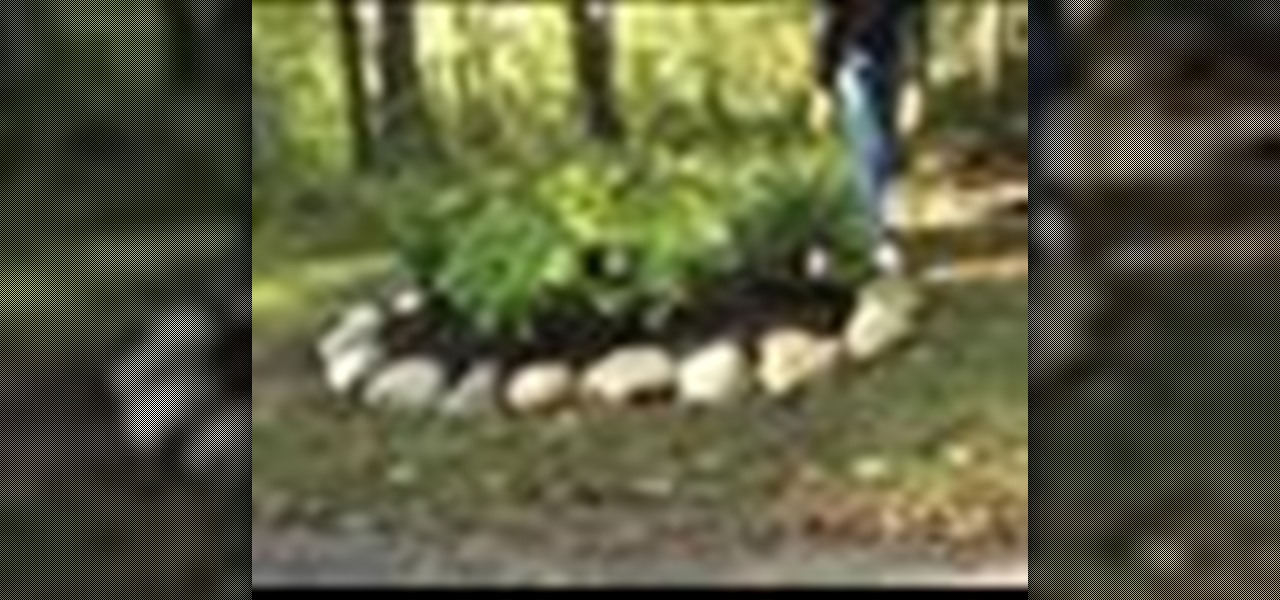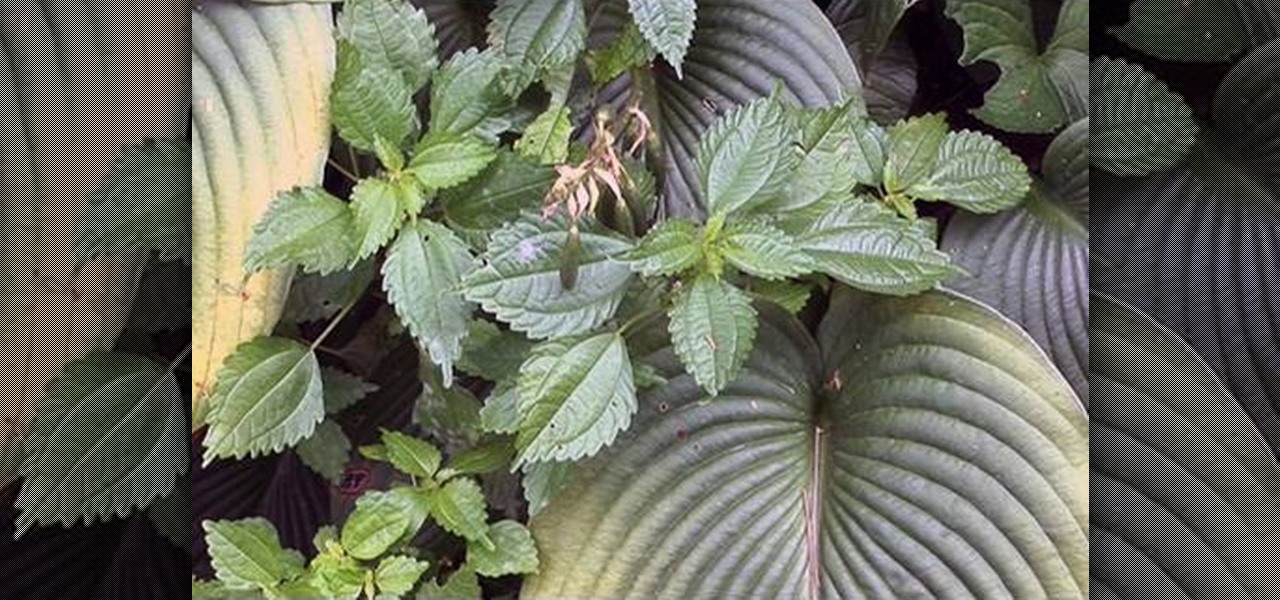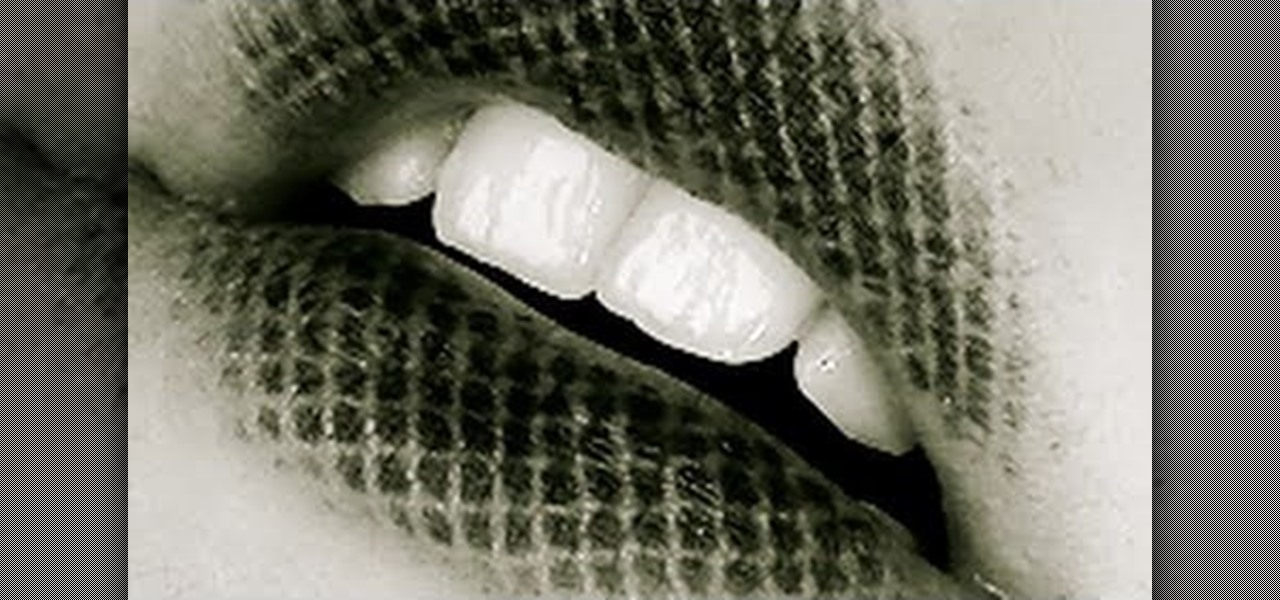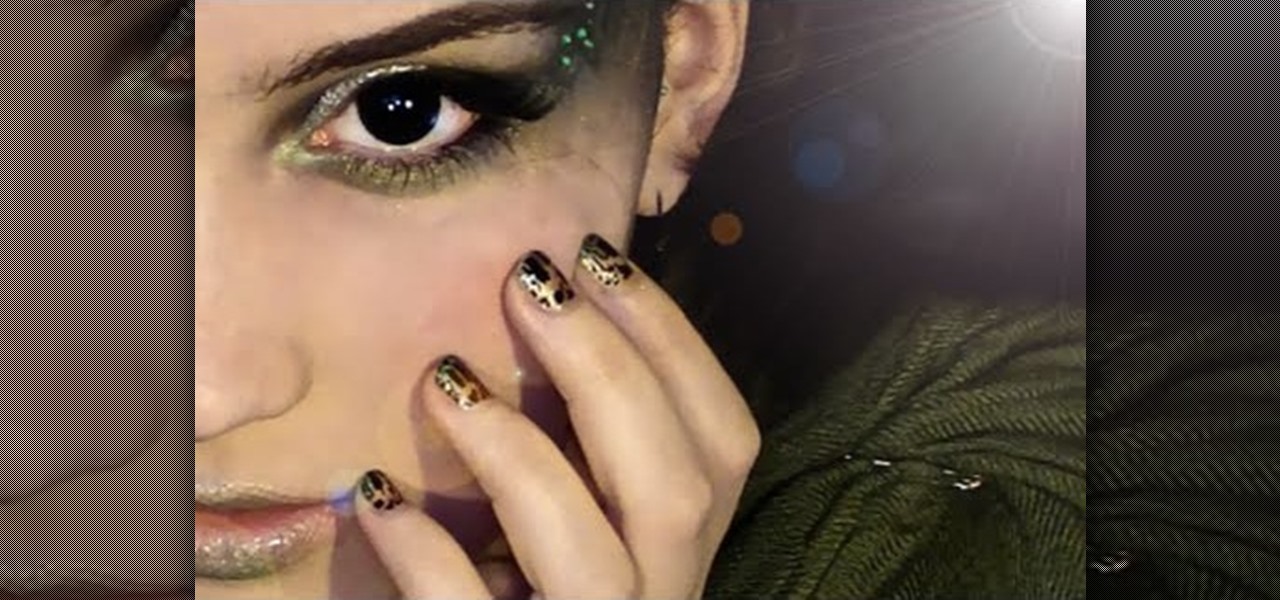
This video tutorial will show you how to start potato seeds in a poly bag or container. It's an easy way to get your potato plants started in the healthiest manner possible. Just watch and follow along! Pretty soon you'll be harvesting full-grown potatoes to go in your eggs or side dish!
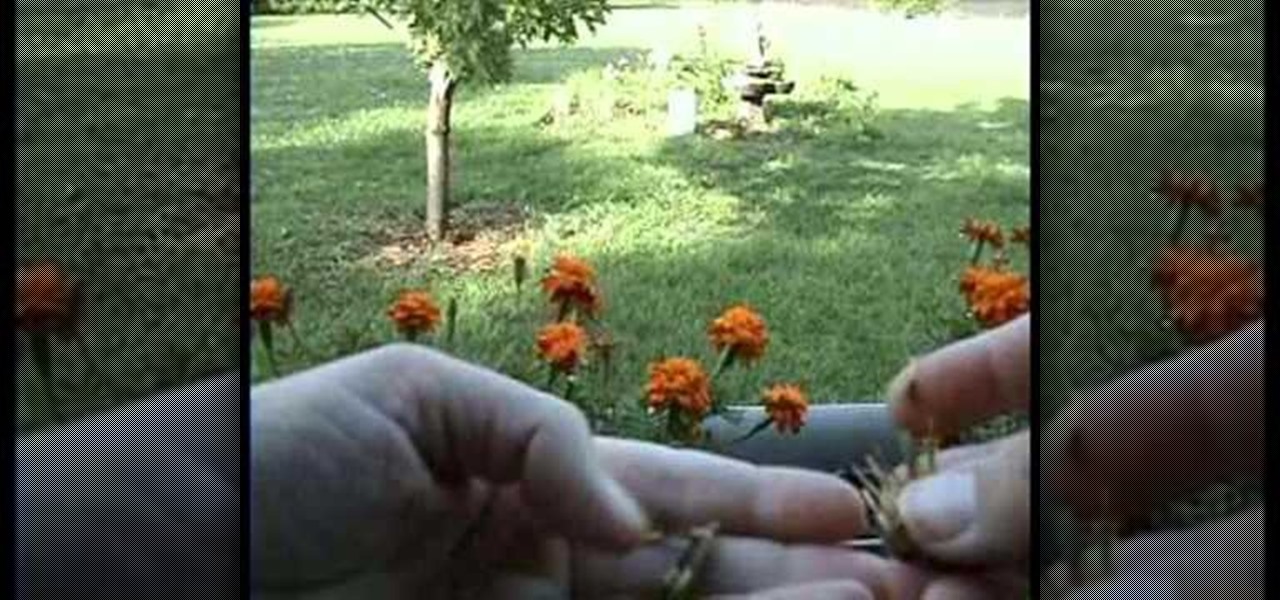
Marigolds are a beautiful addition to any garden and a pleasure to to plant. Plant your own marigolds by harvesting marigold seeds with help from Garden of Imagination. Learn everything you need to know about harvesting these seeds right here.
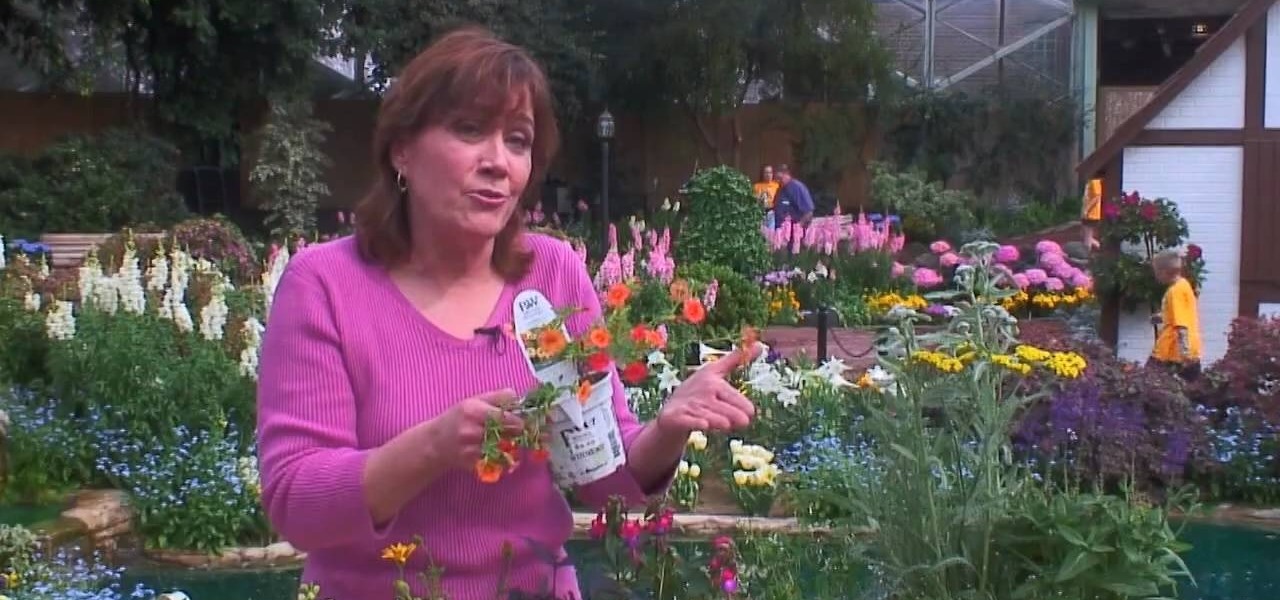
Get your garden started by brainstorming and plannng out the lay-out. The trick to designing a great flower garden that will bloom all season is matching the plant to its preferred growing condition. Learn how to do this with help from expert, Melinda Myers, a world-renowned expert gardener with a critically acclaimed TV show, Melinda's Garden Moment, and a popular radio program, "The Plant Doctor".
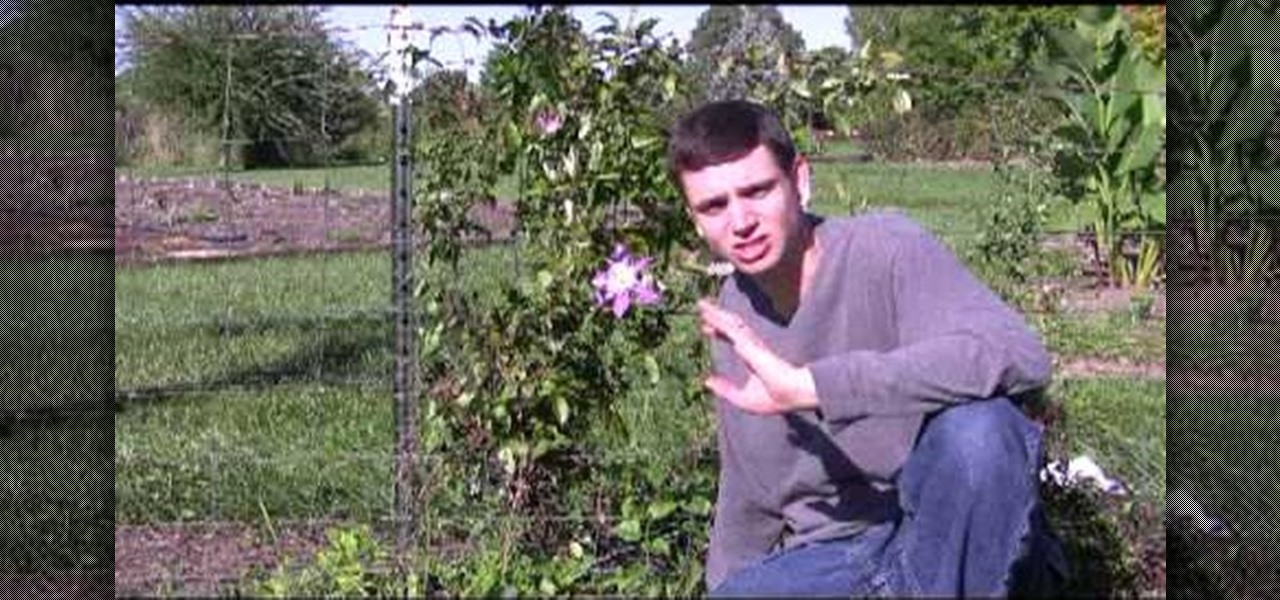
Scott from Spring Hill Nursery gives advice on caring for clematis, a beautiful plant that is easy to grow. Clematis blooms in late summer or early fall, and thrives in almost any conditions. It does fine in either full sun or a partly shaded location, but you should use mulch around the roots to keep them cool.
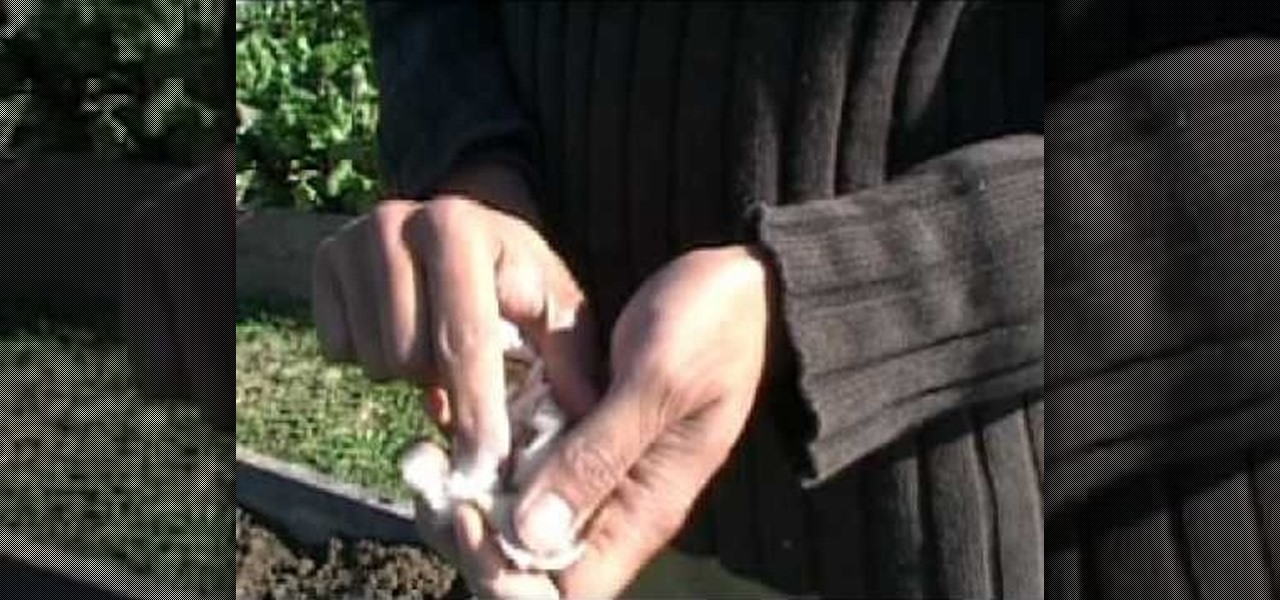
You may know your onions but do you know your garlic? If not, you'll be well served by this gardener's guide, which presents an overview of the different varieties available for planting (including soft-neck, hard-neck and so-called elephant varieties) and provides tips on actually planting the stuff in your own garden.
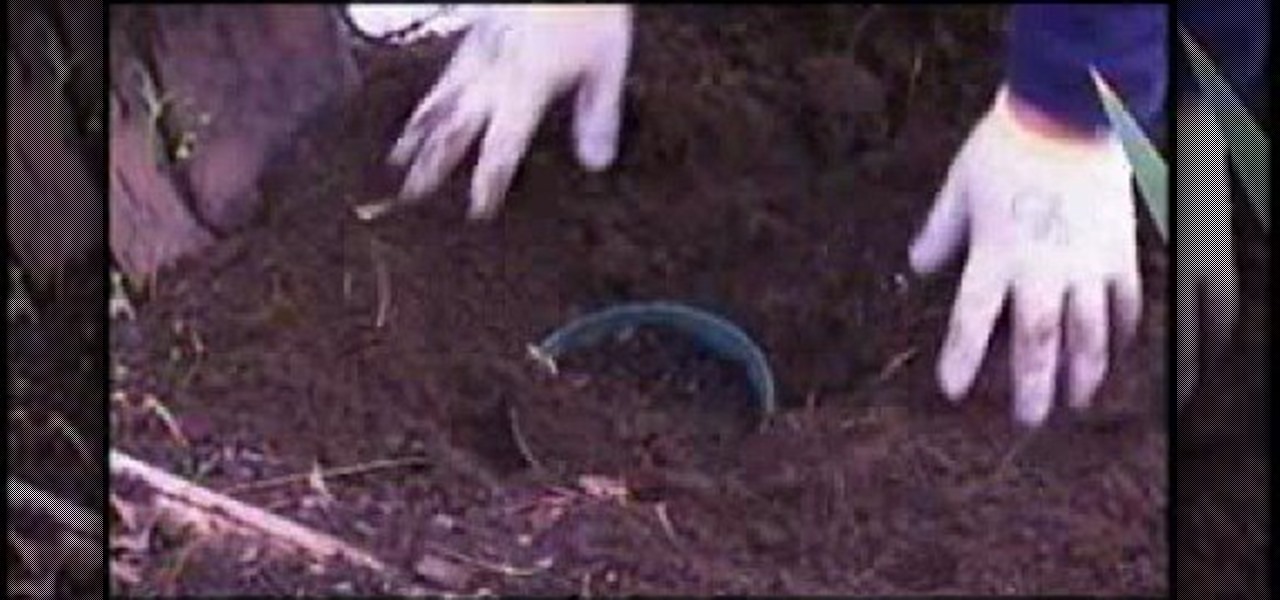
Phyllis Stevens gives us some tips on planting Tulips in the winter. We start by taking a container filled with Potting Soil, then we Plant the Tulip Bulbs. You should fit up to 3 bulbs per pot. Putting some Crocus on the top of the soil doesn't hurt. Bury the bulbs in the garden, covering with Leaves and pine-needles. In the Spring (February-March) we will take the pots out from the soil and Sink them down into the Planter Soil. Once they are finished blooming take them out from soil and put...

How to grow sweet potatoes

In this Home & Garden video tutorial you will learn how to identify problems with euonymus, Chinese holly & pines. Japonica plant is very susceptible to powdery mildew which shows up as white spots on the leaves. It also affects some other plants like roses. This will discolor and deform the leaves. You need to spray with recommended fungicide. If the disease has gone too deep into the plant, you may have to remove some badly affected foliage and then spray. You may also think of replacing th...

In this video you will learn how to get your potato plant growing using a 5 gallon bucket. Start by taking your 5 gallon bucket and drilling a series of small holes at the bottom for draining. Next line the bottom of your bucket with about 2 inches of rocks to help with drainage and top with a layer of weed block and a couple inches of soil. Now your bucket is ready to add a budded potato. To make your potatoes bud out simply leave them in a bag and place them in the dark for about a month un...

John White (Doña Ana County Extension Agent) talks to Natalie Goldberg (Extension Plant Pathologist) about Powdery Mildew that affects many plants. They look at a Japonica that is heavily infested. Powdery Mildew is enhanced by shaded condition despite the dry climate. It starts with a spot spore infection that will easily spread by the wind or by rubbing. Control methods are difficult and involves a lot of routine applications of chemicals (ornamental fungicide) to keep it in check once the ...

In this video tutorial, viewers learn how to grow a tuberous begonias. It is recommended to pot the tuberous begonias in the early spring of March. Begin by removing the tuberous from it's bad and discard any packing material. Be gentle and do not remove the buds. Select a small pot that is slightly larger than the tuberous begonias and fill the pot 2/3 with well drained soil less potting mix. The carefully place the tuberous rite-side up in the potting mix and cover it with more mix. Water t...

Curtis Smith and Jim Sais describe how to choose pansies, chrysanthemums and asters. Pansies are very small plants and they come in different varieties and sizes such as dancing bears . The face of the pansies is very exact and the right fertilizer will cause them to grow successfully. Amended soil will work best for pansies. Chrysanthemums are spectacular plants and they can be used in containers as well. They signify a fair well to summer. When they are finished blooming, you should be able...

After receiving your dahlia tuber in the mail, dig a hole where you want the flowers to bloom in your garden. It should be big enough to place the whole tuber into and be completely covered by dirt. Before planting your tuber, you need to find where the head is. Find where the stalk was last year. When placing it in the ground, make sure the stalk is pointing up. After planting, your tuber should be flowering in about 4 weeks. Because the wind and rain can be tough on your flowers, it's a goo...

Danny Lipford shows how to grow a more colorful flower garden in early spring when there is not a lot of overall growth. He displays how he plants tulips and daffodils in the fall so that they bloom in the spring. He digs a troth about 6 feet long and 6 inches deep. After sprinkling bulb food in the troth, Lipford plants the tulip and daffodil bulbs, arranging them so each uniquely appears every other bulb. Lipford's assistant advises that he re-plants the tulips every year, since while they ...

This task can be completed by following the instructor's ideas. The task is to draw bean sprout leaves. The instructor is a professional graphic designer. He begins by tracing the outline of the plant before beginning. You must then follow the outline with a darker ink to bring the image to life. To give the plant more life like detail you must draw in all the life veins as shown by the instructor. This instructor shows you how to draw a animated bean sprout plant.

This video demonstrates how to mist your plants and to keep insects away. Plants that like high humidity will benefit the most from misting. Use an empty spray bottle that already has a mister. Clean the bottle well and spray a few times to get residual material from the tube. The best time to mist is in the morning, but you should mist at least once a day. Using a humidifier along with the misting process in the winter will make your plants happy.

This video shows the viewer how to create a stylish centerpiece for a wedding reception using commonly available items. This is done by first placing a square mirror on top of a larger piece of light pink tulle. Then an artificial plant was selected and a number of glass beads were secured around the piece using another piece of tulle and a ribbon; this is to stop the plant floating. The plant is then placed in a tall square vase that is filled with water. A single drop of food dye is then ad...

This video tells you about humidity trays and how they are good for tropical plants like orchids. The tray consists of gravel or small stones and water in the tray. You have to have enough gravel to keep the plant out of the water. This video also discusses ways on how to make sure the humidity tray doesn't scratch your furniture. After watching this video you will have gained some insight into keeping and maintaining tropical plants as well as ferns.

One way to increase production in tomato plants is pruning. Pruning your tomato plants will decrease the amount of energy needed for leaf production and increase the amount of energy that goes into your tomato, which provides a a larger and better tasting tomato. Trimming off branches that are not used and are not in direct sunlight achieves more efficiency by directing sugars into the fruit and not into the other branches. Watch this time lapse how-to video, follow along with the tips, and s...

The art of floral arrangement is a fun & valuable skill. Dana Plazyk lends useful tips and tricks on making simple flower arrangements.

Dave Wilson Nurseries, Ed Laivo shares ideas for growing blueberries in containers. You will need 1/3 acid based potting soil plus 1/3 peat moss plus 1/3 medium sized bark. For the best results, containerize your blueberry plants. We show you the proven way to do it.

Go ahead and celebrate your individuality—just don't announce to the office that you're a lazy nut-job. You will need: awareness, self restraint, plants, clock, a bowl of candy and personal momentos. Keep politics and religion out of the decor. Keep collectables at home. Interesting not: Plants indicate you are dedicated to your job.

In this video tutorial, you'll find step-by-step instructions on how to remove an unwanted rose, or any other unwanted plant, without digging it out of the ground and without the use of pesticides. For full instructions, watch this garden how-to.

There are some pests in the garden that can be difficult to see, then there are others that are much more obvious, like these bagworms. Watch this how to video to learn how to rid your garden plants of this nasty pest.

Take a look at this instructional video and learn how to perform the foot plant to fakie trick on a ramp with a skateboard. Be sure to wear safety gear when attempting this skateboard trick.

If you're like me, you put some or all of your houseplants outside for the summer. Now that fall is here, it's time to think about moving them back in for the long winter ahead. This how to video shows a few steps you can take to prepare your plants for indoor conditions. Following these easy steps should help ensure your plants winter over successfully, so you can get them outside again next spring.

Learn how to identify and watch out for poisonous plants of the Eastern Woodlands, especially poison ivy, of course.

Check out this video to learn how to find and gather wild edibles and medicinal plants. First, learn how to identify the toothwort plant. If you don't already know how to recognize the wild lettuce plant, keep watching.

Watch to learn how to say the names of some plants, like chicory and artichoke, in French. For intermediate French speakers--no English translation.

Indoor gnats, which are also known as fungus gnats, are not only annoying. Their larvae feed on plant stems and roots and can cause considerable damage to seedlings and small plants. Luckily, you can get rid of these obnoxious little pests without using harsh chemicals.

Learn how to plant tulip bulbs correctly and protect them from critters. A garden expert gives detailed instructions.

You won't believe what's the best tomato plant food! Watch this video to find out.

Learn how to build a piranha plant from Nintendo's Super Mario Bros. out of legos.

If looking for a way to make your garden interesting throughout the year don't just concentrate on the flowers, look at other parts of the plant. An example is a Rose bush. After the Roses are finished many have beautiful leaves. One plant has beautiful hips, large seeds pods. They add interest during the summer, then in the fall they'll turn a ruby red creating interest throughout the entire season. Consider the whole plant and its' characteristics during different seasons.

Rock gardens are a great way to add color and texture to your lawn. Learn how to build a rock garden in your yard. Common goal is to add interest to your yard. You will need rocks, top soil and plants. If you don't know what type of plants talk to your nurseyman at the garden center.

This Survival Podcast teaches how to water seedings from the bottom up. After you have transfered your plants to new pots, preferably sterilized bins, you put holes in the bottom of the pots. If they are too high, the watering technique will not work. The plants in the pot are placed into a larger bucket. You just add water to the outter bin and allow the plants to "draw up" the moisture through the soil. You want to make sure not to add too much water or the plants will "over-draw". About on...

TheFlowergod teaches you how to design an Asian quince design for your home. You start with an empty vase for this flower arrangement. You will need four types of plants for this: one with lots of small leaves and no flowers, one with red or pink flowers, one with only one large leave and one with a long stem and only branches. For the design to work, you have to layer the plants according to length. Add the plant with the long leaves, then the one with lots of small ones. Below that make you...

Clearweed is a member of the nettle family and it comes up all over the country. The easiest way to identify the plant is by the little white flowers that grow along its stem. There really isn't anything wrong with the plant but it is a weed that covers up other stuff in the garden. An interesting point about it is that it pollinates by the wind. So when the wind blows the seeds of the plant are blown about. You will typically find it growing in clusters because it is blown by the wind. Four ...

You've seen snakeskin purses, snakeskin printed scarves, and maybe even snakeskin eyeshadow decals. But snakeskin lips? Now that's a new one.

Just because Greek monster and general bully Medusa had yucky snakes slithering out of her head doesn't mean a Halloween look based on her has to be disgusting and scaly. Bring out the beautiful side of the myth by creating this gorgeous stonelike Medusa look.








